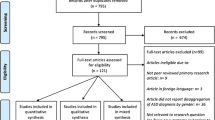Abstract
Objectives
We explored differences in fetal alcohol spectrum disorders (FASD) knowledge, attitudes, and behaviors across six groups of professionals in key position to provide primary and secondary prevention efforts (physicians, educators, correctional staff, social workers, public health nurses, and substance abuse counselors).
Methods
Achieving a 60.1% response rate, 2,292 professionals returned surveys, providing data on basic knowledge of FAS, FASD-associated risks and cognitive deficits, and willingness to confront and recommend treatment to alcohol-consuming pregnant women.
Results
Across groups, findings revealed ample FASD knowledge and willingness to confront and recommend treatment to alcohol-consuming pregnant women that increases as consumption becomes more frequent and severe. However, results revealed significant between-group differences data that provide valuable guidance for targeted future FASD education efforts.
Conclusions
Public health initiatives regarding FASD have been effective in increasing knowledge among a broad range of professionals. However, between-group differences indicate the need for targeted, discipline-specific interventions. These differences highlight the need for all professional groups to provide a consistent public health message regarding maternal alcohol consumption.


Similar content being viewed by others
Notes
Full results, including means and standard deviations are available from the first author.
References
Abel EL, Kruger M (1998) What do physicians know and say about fetal alcohol syndrome: a survey of obstetricians, pediatricians, and family medicine physicians. Alcohol: Clin Exp Res 22:1951–1954
American Academy of Pediatrics (2005) AAP policy statement: breastfeeding and the use of human milk. Pediatrics 115:496–506
American College of Obstetricians and Gynecologists (2006) Drinking and reproductive health: a fetal alcohol spectrum disorders prevention tool kit. American College of Obstetricians and Gynecologists, Washington, DC
Bertrand J, Floyd RL, Weber MK, O’Connor M, Riley EP, Johnson KA, Cohen DE (2004) National Task Force on FAS/FAE Fetal alcohol syndrome: guidelines for referral and diagnosis. Centers for Disease Control and Prevention, Atlanta, GA
Brimacombe M, Nayeem A, Adubato S, Zimmerman-Bier B (2008) Fetal alcohol syndrome related knowledge assessment and comparison in New Jersey health professional groups. Can J Clin Pharmacol 15:57–65
Burd L, Selfridge RH, Klug MG, Bakko SA (2004) Fetal alcohol syndrome in the United States corrections system. Addict Biol 9:169–176
Cox LV, Clairmont D, Cox S (2008) Knowledge and attitudes of criminal justice professionals in relation to fetal alcohol spectrum disorder. Can J Clin Pharmacol 15:306–313
Denny CH, Tsai J, Floyd RL, Green PP (2009) Alcohol use among pregnant and nonpregnant women of childbearing age—United States, 1991–2005. MMWR Morb Mortal Wkly Rep 58:529–532
Diekman ST, Floyd RL, Decoufle P, Schulkin J, Ebrahim SH, Sokol RJ (2000) A survey of obstetrician-gynecologists on their patients’ alcohol use during pregnancy. Obstet Gynecol 95:756–763
Dillman DA (2000) Mail and internet surveys: the tailored design method, 2nd edn. Wiley, New York
Elliott E, Payne J, Haan E, Bower C (2006) Diagnosis of fetal alcohol syndrome and alcohol use in pregnancy: a survey of pediatricians’ knowledge, attitudes, and practice. J Paediatr Child Health 42:698–703
Fazel S, Bains P, Doll H (2006) Substance abuse and dependence in prisoners: a systematic review. Addiction 101:181–191
Gahangan S, Sharpe TT, Brimacombe M, Fry-Johnson Y, Levine R, Mengel M, O’Connor M, Paley B, Adubato S, Brenneman G (2005) Pediatricians’ knowledge, training, and experience in the care of children with fetal alcohol syndrome. Pediatrics 118:657–668
Harwood HJ, Napolitano DM (1985) Economic implications of the fetal alcohol syndrome. Alcohol Health Res World 10:38–43
Jones KL, Smith DW (1973) Recognition of the fetal alcohol syndrome in early infancy. Lancet 2:999–1001
Lemoine P, Harousseau H, Borteyru JB, Menuet JC (1968) Les infants des parents alcooliques. Anomalies observees, a propos de 127 cas. Ouest Med 21:476–482
Loop KQ, Nettleman MD (2002) Obstetrical textbooks: recommendations about drinking during pregnancy. Am J Prev Med 23:136–138
Lupton C (2003) The financial impact of fetal alcohol syndrome. Washington, DC, SAMHSA FASD Center for Excellence
Maier SE, West JR (2001) Drinking patterns and alcohol-related birth defects. Alcohol Res Health 25:168–174
May PA, Gossage JP (2001) Estimating the prevalence of fetal alcohol syndrome. A summary. Alcohol Res Health 25:159–167
Mengel B, Ulione M, Cook K, Wedding D, Rudeen K, Braddock S, Ohlemiller M (2006) Midwest family physicians’ knowledge and attitudes about FAS, FASD, and alcohol during pregnancy. J Fetal Alcohol Syndrome 4:1–10
Nanson JL, Bolaria R, Snyder RE, Morse BA, Weiner L (1995) Physician awareness of fetal alcohol syndrome: a survey of pediatricians and general practitioners. Can Med Assoc J 152:1071–1076
Sharpe T, Alexander M, Hutcherson J, Floyd R, Brimacombe M, Levine R, Mengel M, Stuber M (2004) Physician and allied health professionals’ training and fetal alcohol syndrome. J Womens Health 13:133–139
State of Alaska Office of FAS (2005) Honoring our past and shaping our future: Enhancing and sustaining Alaska’s FASD Project. Alaska Department of Health and Human Services. Division of Behavioral Health, Juneau, AK
Streissguth AP, Barr HM, Kogan J, Bookstein FL (1996) Understanding the occurrence of secondary disabilities in clients with fetal alcohol syndrome (FAS) and fetal alcohol effects (FAE), final report to the Centers for Disease Control and Prevention (CDC). University of Washington, Fetal Alcohol & Drug Unit, Seattle
Tough SC, Clarke M, Hicks M, Clarren S (2005) Attitudes and approaches of Canadian providers to preconception counseling and the prevention of fetal alcohol spectrum disorders. J Fetal Alcohol Syndrome 3:1–16
Tsai J, Floyd RL (2004) Alcohol consumption among women who are pregnant or who might become pregnant—United States. MMWR Morb Mortal Wkly Rep 53:1178–1181
Acknowledgments
This study was supported in part by Grant Number 5UD1SP09198 from the Substance Abuse and Mental Health Services Administration, US Department of Health and Human Services. Contents are solely the responsibility of the authors and do not necessarily represent the views of the funding agency.
Conflict of interest
The authors declare that they have no competing interests.
Author information
Authors and Affiliations
Corresponding author
Rights and permissions
About this article
Cite this article
Johnson, M.E., Robinson, R.V., Corey, S. et al. Knowledge, attitudes, and behaviors of health, education, and service professionals as related to fetal alcohol spectrum disorders. Int J Public Health 55, 627–635 (2010). https://doi.org/10.1007/s00038-010-0186-8
Received:
Revised:
Accepted:
Published:
Issue Date:
DOI: https://doi.org/10.1007/s00038-010-0186-8



